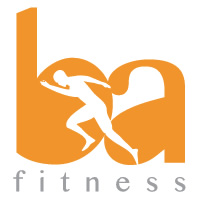Personal Trainer Bristol Principles of training
The principles of training are used as a foundation, to enable a successful training programme to be developed. These principles are applicable to all, whether you’re just starting out, or if you are a seasoned athlete.
SPORR is the acronym to remember, and this is what it all means…
Specificity – The exercises you perform should be specific for what you are training for. Eg, if you are training for running a marathon, then constantly doing heavy-weight strength training focussed on the upper body won’t be of much use.
Progression – A steady increase in the physical demands of the individual is necessary to elicit improvement. It can also refer to the breaking down of a movement pattern, then perfecting that element before moving on to the next element. You will only improve if you challenge your body and in the correct manner.
Overload – Your body will adapt to the stimuli presented to it, but that is as far as it will go. You will only make further improvements by providing additional stimuli, over and above what it is used to. (Also see my FITT principles blog) Eg, if you want to increase strength, you increase the weight lifted. If you want to improve cardiovascular fitness for running, you increase the distance or reduce the time taken to cover a known distance.
Recovery – All fitness improvements are made, not during the exercise period, but in the recovery period. You need to let your body repair and rebuild so that the necessary adaptations can take place. There isn’t a ‘hard-and-fast’ rule as to how long your body requires to recover as there are far too many variables to consider. The key element is to listen to your body.
Reversibility – Also known as “use it or lose it”. Any positive training adaptations that have been gained through all your hard work will be lost if you completely stop training. It is accepted that a 2 – 3 week break from intense training / post-competition is an adequate period of ‘down-time’, after that though, the effects are going to start reversing.
A qualified personal trainer will incorporate this into your training plan, as well as the ensuing re-training or maintenance plan. Unfortunately we can’t ‘store’ health and fitness – it truly is a lifelong journey.
